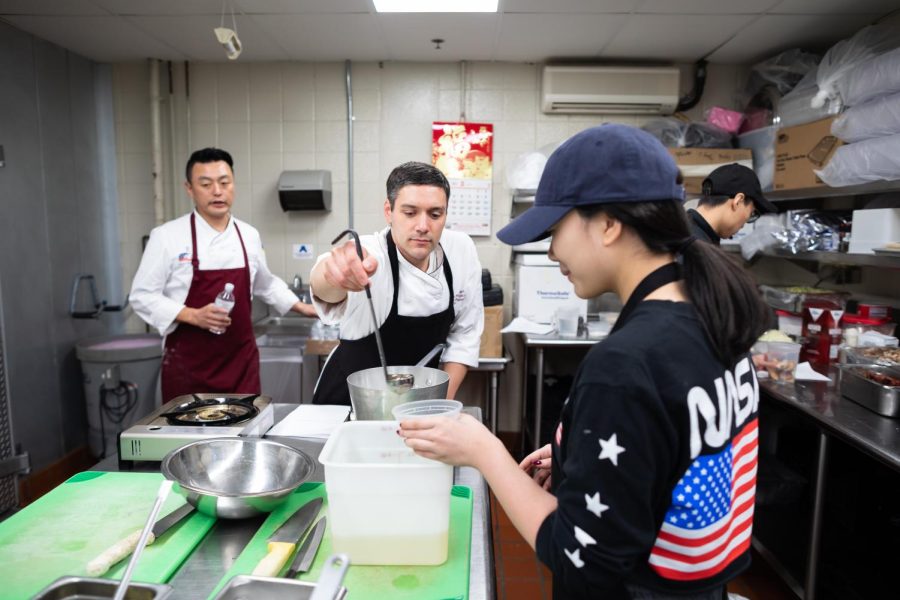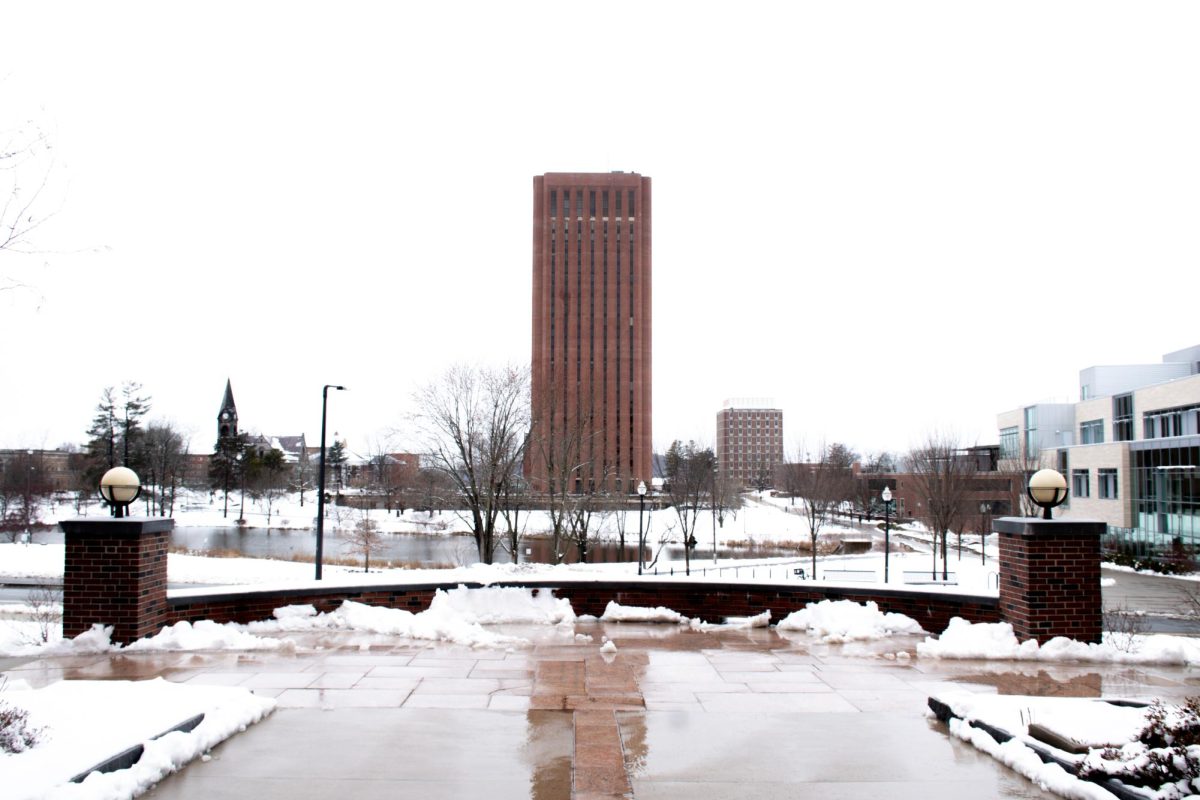As I hold up my last can of chickpeas, I feel triumphant. “Oh,” I think, “we’re eating well tonight.” As a home cook, I was more than eager to move out of the dorms. Yes, avoiding floormates’ vomit or residential hall screams is nice, but I can now cook in my apartment! Spending around 20 to 60 minutes of my day devoted to something calming, unacademic and hopefully tasty is huge for me, but this privilege should not be exclusive to off-campus living.
Of course, dorm kitchens exist, but cooking in one is much like cooking in a crime scene – suspicious stains and smells abound. My attempts to cook in Butterfield Hall were marred by remnants of noodles in the brown sink, a foul countertop and a war-torn microwave. Things were reasonably better in Grayson Hall, but even a reasonable improvement is not enough to make dorm cooking fun.
However, the prospect of fun does not drive monumental kitchen renovations and other culinary solutions. Fun, however, is not all that cooking offers. The University of Massachusetts’ dining program is considerate to diners with food allergies and special diets, but in busy kitchens, cross-contamination could occur. Further, there may not be enough options for those who have a special diet, such as gluten-free diners or those with religious restrictions. Independent cooking gives these students peace of mind that their food is prepared in a manner that works for them.
Peace of mind is also served with familiar dishes that provide a taste of home. Homesick students certainly can find dishes close to their family’s recipe or even provide their own recipe to the dining hall, but even these efforts may not connect one to the comforts of home. As illustrated, cooking for yourself brings comfort, security and peace of mind, with some mental health experts even recommending cooking as a therapeutic measure.
Should the university renovate every subpar dorm kitchen on campus? Although ideal, this seems a little unrealistic. First, UMass should prioritize future dorm kitchens more than previous building ventures did. New dorms on campus should be built with kitchens in mind instead of treating them like the small, frightening instant ramen prep areas they typically become.
Greater initiatives also exist. I hope for a future where students can gather in a community kitchen, a centralized cooking environment where students can socialize, prepare dishes and learn from a community of fellow college cooks. Reliable and accessible kitchen equipment would be a huge improvement over dorm kitchens, and a comfortable dining area would serve as a place to enjoy your freshly cooked meals.
Here, students could cook in a welcoming environment and, with supervision, avoid typical cooking calamities like fires. I note fires because accidents are inevitable in dorm kitchens — and why would the university finance dorm kitchens when these threats exist? Instead, supervisors would prevent such accidents, and students would become more capable in the kitchen.
While students could certainly cook independently in one, a community kitchen would act as a place of learning, too. UMass has the highest-ranking food science program in the country, and yet there is no kitchen for food science majors to assist the whole campus. Besides the obvious benefit of offering jobs, a campus kitchen could offer excellent mentoring opportunities for the culinarily skilled. Uneasy beginners could learn how to cook and shop for ingredients — valuable skills that typical classrooms do not teach. Further, dining halls used to host seasonal cooking classes, but the practice ended during the pandemic. Perhaps this program could return in a community kitchen.
Additionally, culinary clubs could meet there. Picture a baking club all chipping in some money and splitting the baked goods. Breaking bread is a good way to meet people, but baking it is even better. Different cultural groups could express themselves through food instead of eating out or cramming into a small dorm kitchen to connect to their roots.
Despite the cost of establishing a community kitchen, I do not see its creation as unrealistic. With campus overcrowding reaching a breaking point, things will only worsen with the new housing development along Massachusetts Avenue. Keep in mind that this project will aim for “approximately 600 beds of undergraduate apartment-style housing and approximately 200 beds of graduate student apartment-style housing.” Without an additional dining hall being constructed, this means even more hungry students swarming the crowded dining halls.
Whether it’s something as simple as Annie’s mac and cheese or an elaborate coq au vin, students need an alternative dining solution. A community kitchen will unite students and give them a creative and educational outlet, along with easing the load on dining halls. Off-campus students should not be the only ones to experience the joy of cooking. I hope we can all eat well tonight.
Elliot Hajjaj can be reached at [email protected].


















